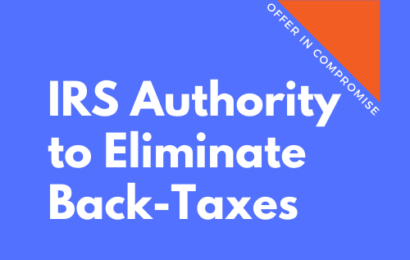
- Instructor: Attorney Bob Schaller
- Lectures: 7
- Quizzes: 1
Collateral Agreements.
Treasury regulation 26 C.F.R. § 301.7122-1(e)(2) states: “As additional consideration for the acceptance of an offer to compromise, the IRS may request that taxpayer enter into any collateral agreement or post any security which is deemed necessary for the protection of the interests of the United States.” 26 C.F.R. § 301.7122-1(e)(2). There are several types of collateral agreements, including without limitation: (a) future income collateral agreements; (b) adjusted basis collateral agreements; (c) net operating loss collateral agreements; (d) capital loss collateral agreements; and (e) passive loss collateral agreements.
A collateral agreement is defined as a contract associated with a Form 656 Offer in Compromise that provides additional terms to the standard contract. IRM § 5.8.6.1.6(1) (10-04-2017). A collateral agreement enables the government to collect funds in addition to the payments offered in Form 656 or to add additional terms not included in the standard Form 656 agreement, thereby recouping part of the difference between the amount of the offer (or additional terms of the offer) and the liability compromised. IRM § 5.8.6.1(1) (10-04-2017).





